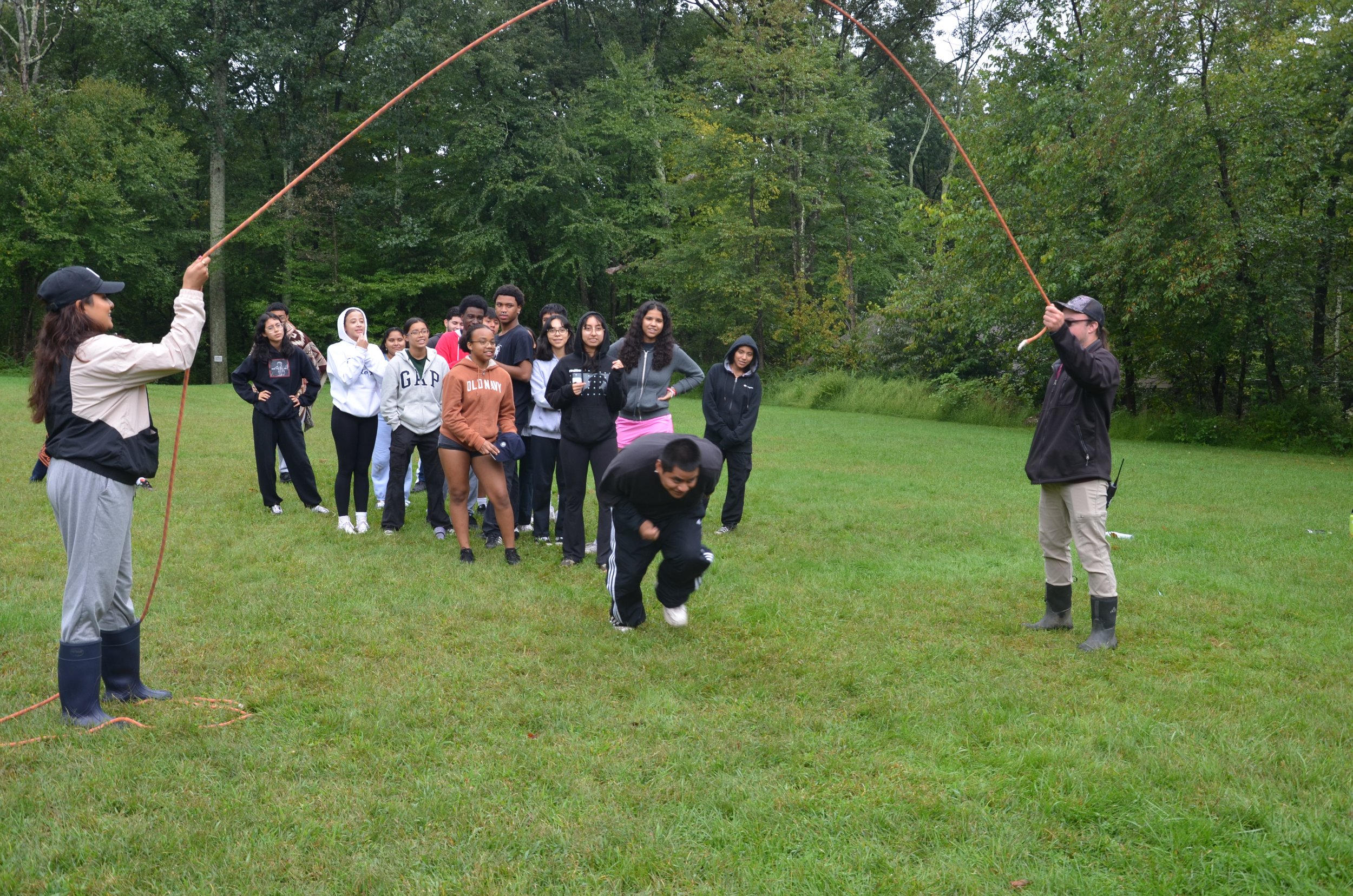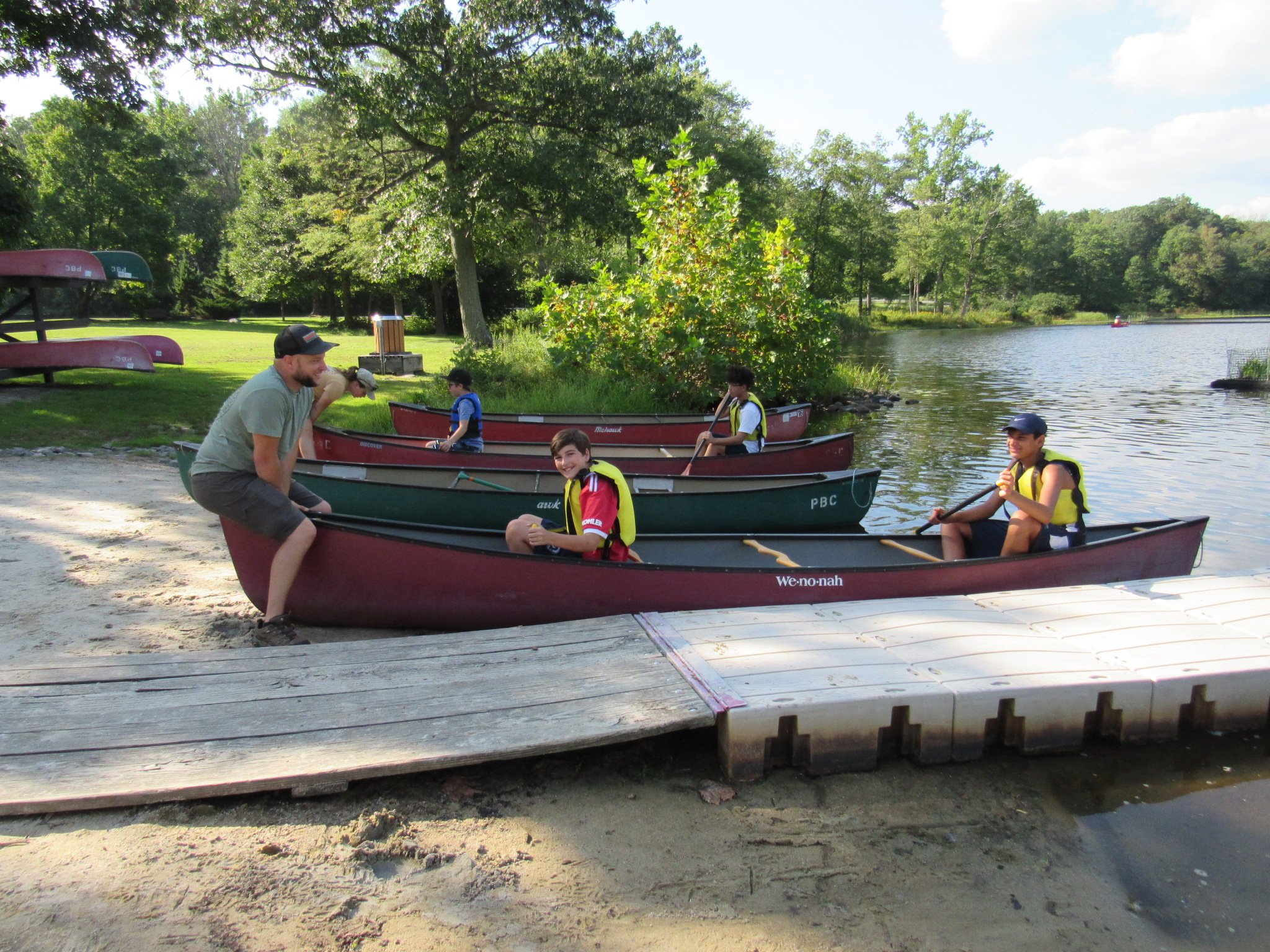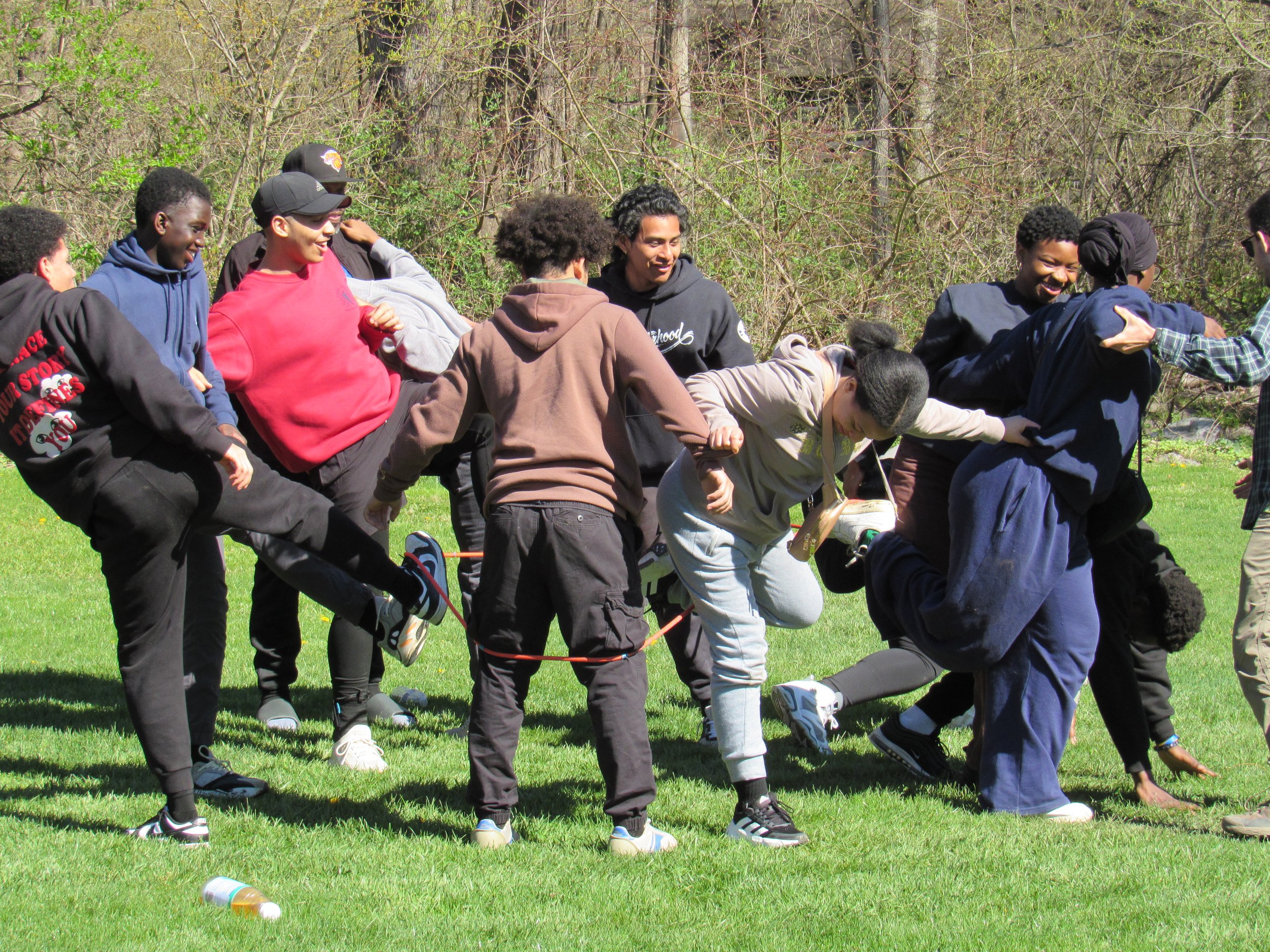Social Justice
Our Commitment
We reaffirm our commitment to stand up to racism, injustice, and helping create a more equitable world for the children of today and tomorrow. Our staff and Board are dedicated to continuing to listen, learn, and examine issues of racism and identity as we challenge the status quo. We recognize that we are lifelong learners in this work. We pledge to model the reflection, learning, and dialogue that we believe needs to happen to work against systemic racism within our organization and beyond to ensure a more equitable future for historically marginalized young people.
Non-Discrimination Statement
The Princeton-Blairstown Center does not discriminate on the basis of race, color, national origin, religion, sex, gender identity (including gender expression), sexual orientation, disability, marital status, family/parental status, income derived from a public assistance program, political beliefs, or reprisal or retaliation for prior civil rights activity in any program/activity or in its employment practices.
Our History of Diversity
Over the past thirty years, the Center has demonstrated its commitment to diverse leadership even when diverse voices were not readily heard in the outdoor community. During this time, our female and BIPOC leaders have included:
Jennie Curtis, Executive Director from 1990-1993
Hendricks Davis, Executive Director from 1993-2004
Joan Doig, Board Chair from 2000-2007
Claudia Franco Kelly, Board Chair from 2021-2023
Jane Fremon, Board Chair from 2007-2009
Pam Gregory, President & CEO from 2013-present
Shawn Maxam, Board Chair from 2023-present
Wardell Robinson-Moore, Executive Director from 2007-2013
Janet Smith Dickerson, Board Chair from 2009-2013
Sarah Tantillo, Ed.D., Board Chair from 2016-2021
Chris Van Buren, Board Co-Chair from 2009-2010
Andre Washington, Board Chair from 1988-1994
“Every person, every student here, has a story. When those stories come together they all become a beautiful melting pot.”
Our Past
One of The First Camps in the US to Integrate
The Princeton-Blairstown Center has a longstanding and deep commitment to social justice, dating back to our days as the Princeton Summer Camp when we were one of the first camps in the United States to integrate.
Dr. Robert Rivers, Jr. was one of the first African-American boys from the Witherspoon-Jackson neighborhood of Princeton to attend the Princeton Summer Camp. In a 2016 article written by Dr. Rivers for Community News, he writes:
Although the camp for boys had been in operation for many years, African-American youngsters always had been excluded. Frank Broderick appealed to his university advisers to allow a small group of black youngsters from town to attend the camp as a “social experiment,” and the advisers agreed. I happened to be one of the eight youngsters who arrived at the camp that sunny day in August. The camp’s African-American chef kept an eye on the situation, and anyone who seriously anticipated trouble must have been relieved and surprised.
The “experiment” benefited all campers, and it resulted in a very positive learning experience for Princeton students and Princeton’s administration. The experience also became a defining moment for a 14-year-old African American. I began to think seriously about personal possibilities at Princeton University.
Dr. Rivers receives an honorary degree from Princeton University in 2016 in recognition of his work toward a more diverse and equitable university.








